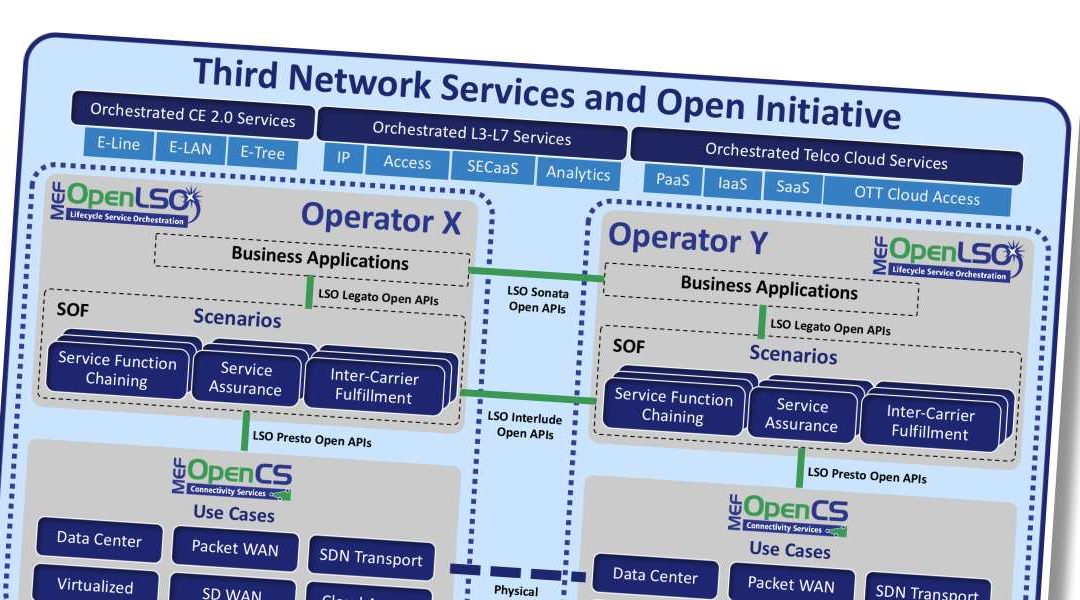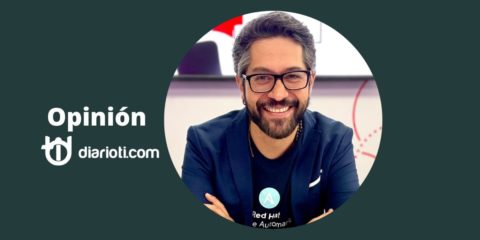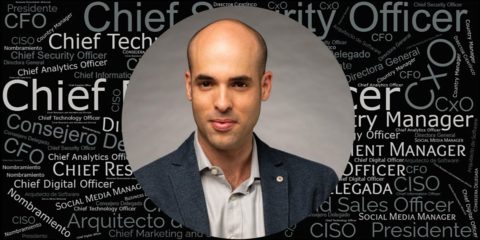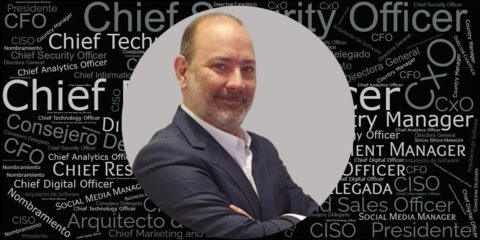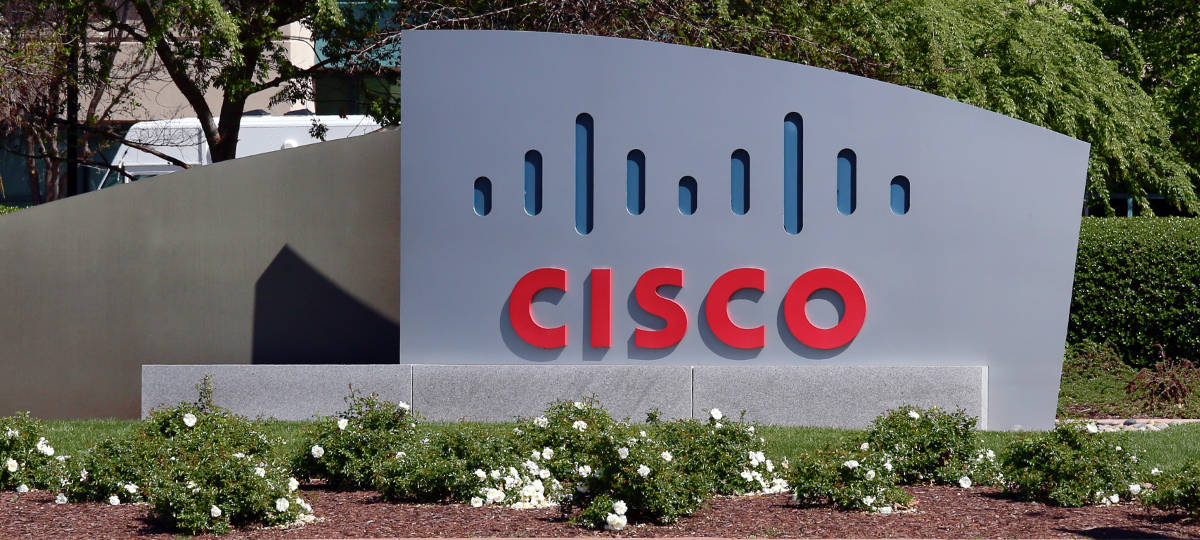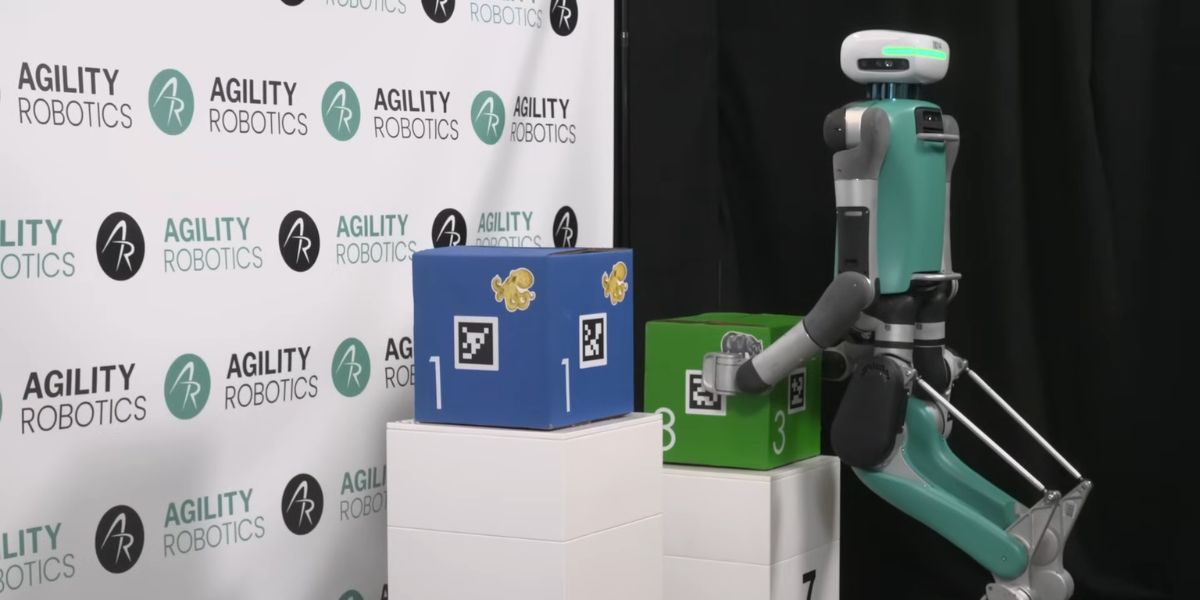MEF has published a new report spotlighting recent advances in development of LSO (Lifecycle Service Orchestration) capabilities and APIs that are key to enabling agile, assured, and orchestrated Third Network services over multiple provider networks. Available here, the report describes objectives, achievements, and recommendations from multiple teams of professionals who participated in the Euro16 LSO Hackathon held in late April. The event, which involved more than 45 individuals from 19 organizations, took place against the backdrop of MEF’s recently published LSO Reference Architecture & Framework (MEF 55).
MEF is the industry body defining LSO capabilities and APIs to automate the entire service lifecycle in a sustainable fashion for coordinated management and control across all network domains responsible for delivering an end-to-end connectivity service. This increasingly important area of work enables service providers to transition away from today’s silo-structured BSS/OSS approach towards flexible end-to-end service orchestration that leverages the benefits of SDN and NFV.
The Euro16 LSO Hackathon was the second in a series of MEF-facilitated LSO Hackathons focused on accelerating development of Third Network services based on LSO, SDN, NFV, and CE 2.0 (Carrier Ethernet 2.0) services encapsulated in OpenLSO (Open Lifecycle Service Orchestration) scenarios and OpenCS (Open Connectivity Services) use cases.
OpenLSO scenarios express the capabilities required by service providers to orchestrate end-to-end services as described by MEF specifications and are essential elements in the lifecycles of Third Network services. Euro16 LSO Hackathon teams worked on two major OpenLSO scenarios:
• Inter-Carrier Ordering: LSO Hackathon participants successfully initiated an order for a CE 2.0 Access EPL service between a service provider and a network operator across the LSO Sonata Reference Point that supports management and operations interactions between network providers. They also provided valuable feedback to progress MEF work on standardized ordering of CE 2.0 services. The team included representatives from AT&T, Ciena, Ericsson, CableLabs and Amdocs.
• Service Function Chaining: LSO Hackathon participants demonstrated injection of a virtual firewall into a live CE 2.0 E-Line service using TOSCA templates. This innovative approach – which was the first time that Virtual Network Functions (VNFs) have been injected into a CE 2.0 service in the LSO Hackathon environment – involved collaboration with MEF members working on LSO Presto Network Resources Provisioning (NRP) APIs. Representatives from Gigaspaces, Cisco, Huawei, NetCracker, Telecom Italia Sparkle, CenturyLink, and Iometrix took part in this effort.
OpenCS use case instances represent the services under the control of a specific network operator but which are orchestrated as part of a federated system initiated by a Third Network service provider via LSO Presto NRP APIs. Euro16 Hackathon teams worked on two of the multiple emerging uses cases identified by MEF:
• Packet WAN: The Packet WAN use case focused on orchestrating CE 2.0 services using an OpenDaylight SDN controller in combination with CE 2.0 networking devices provided by Cisco. The team provided important feedback for continued development of Presto NRP APIs as well as code contributions and recommendations for the ODL community. Representatives from Cisco, Amartus, Ericsson, HPE, Microsemi, and CenturyLink formed this team.
• Data Center: An outgrowth of the collaboration agreement between MEF and ON.Lab to advance open Third Network services, the Data Center use case focused on key elements required to deliver CE 2.0 E-Line services in an E-CORD environment. The team included professionals from ON.Lab, Edge Core, Huawei, Infinera, Iometrix, NEC, NTT, and ZTE.
“We appreciate the broad industry support enjoyed by the Euro16 LSO Hackathon and the diligent efforts put forth by the Hackathon teams,” said Charles Eckel, Open Source Developer Evangelist at Cisco DevNet and co-editor of the Euro16 LSO Hackathon Report. “The event proved to be a very effective way to bring together key contributors from multiple standards organizations and open source projects to work toward a shared goal of accelerating development of Third Network services over open, automated, virtualized, and interconnected networks. This is exactly the type of collaboration we need to drive the industry forward.”
The next LSO Hackathon will take place at the MEF16 (http://mef16.com/) global networking conference held on 7-10 November 2016 at the Hilton Baltimore Inner Harbor Hotel, Baltimore, MD, USA. LSO Hackathon work will be extended to support overarching Third Network service projects built upon underlying OpenLSO scenarios and OpenCS use cases. Please contact Daniel Bar-Lev, Director Certification & Strategic Programs, MEF at Daniel@mef.net if you have questions about participating in the MEF16 LSO Hackathon.
About MEF
About MEF16

